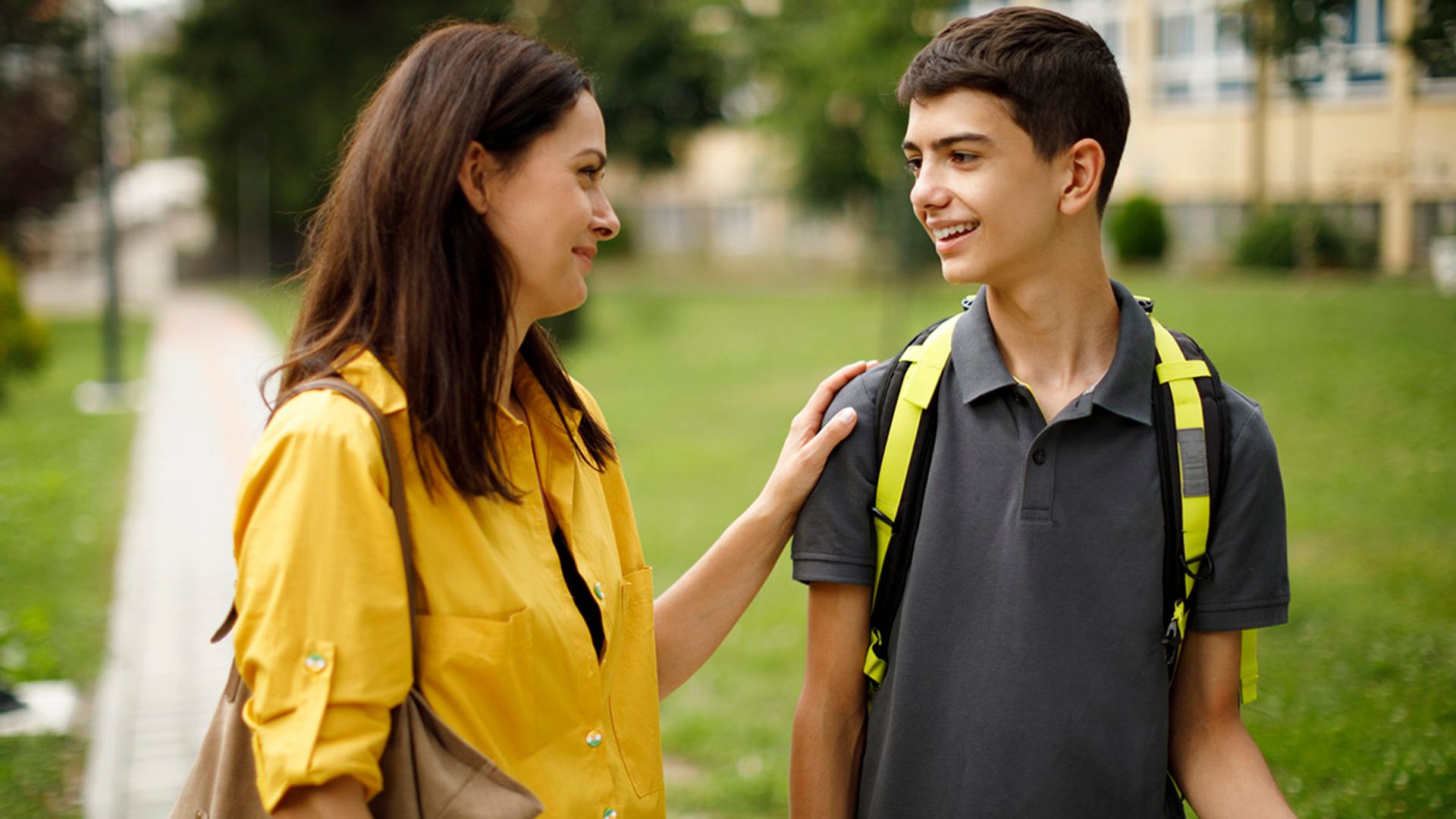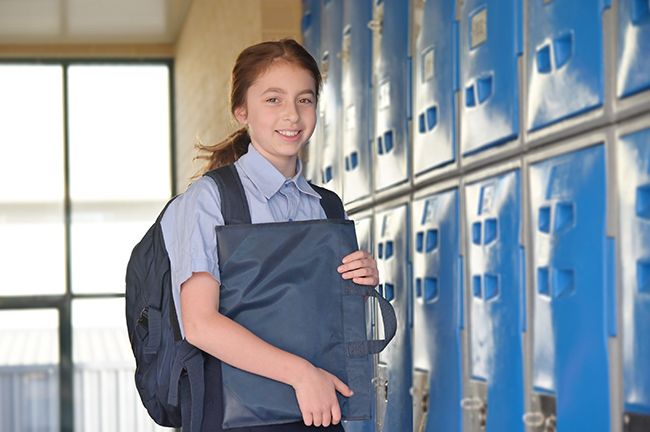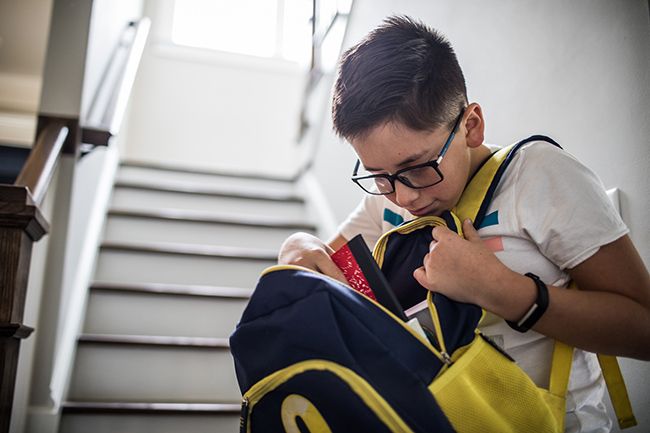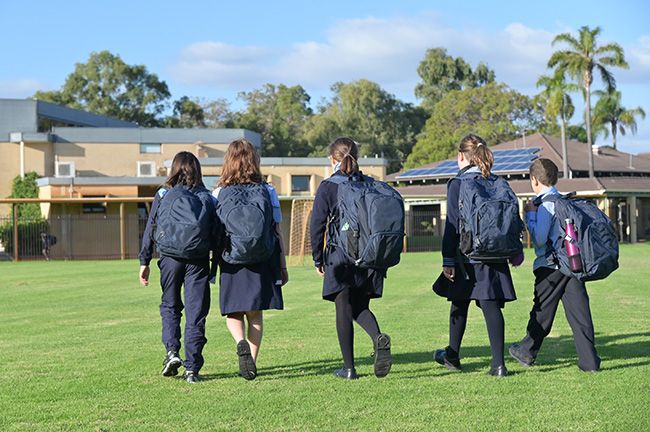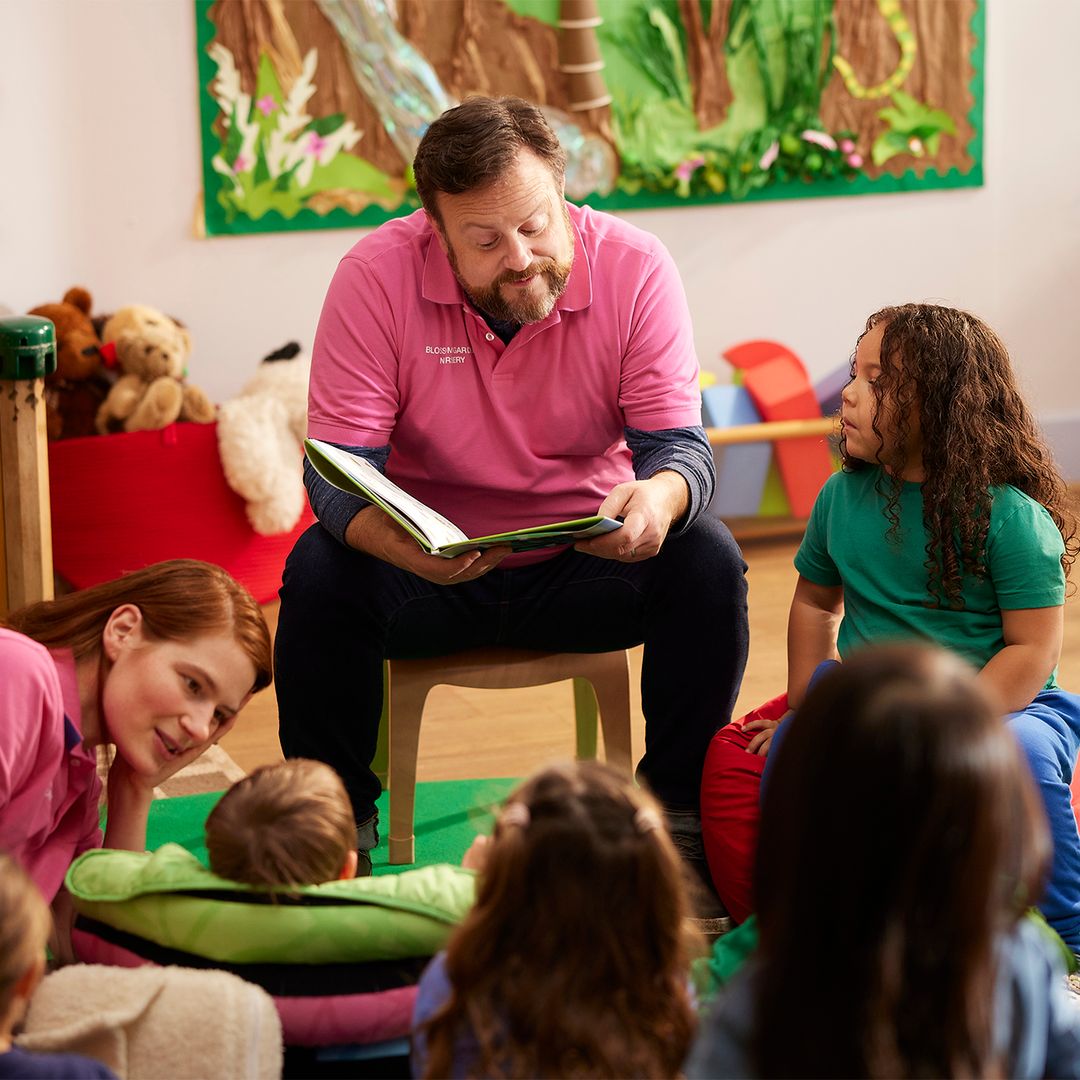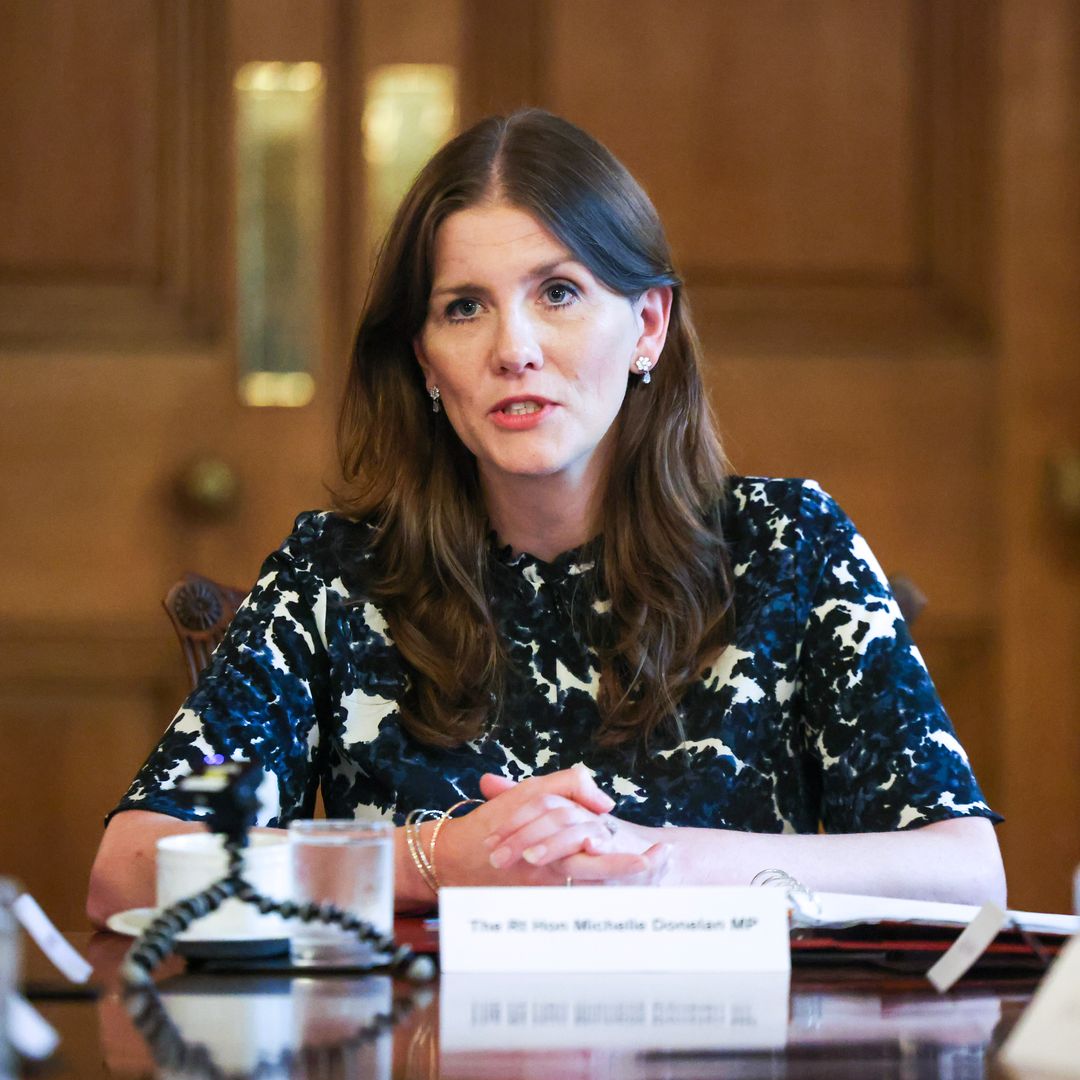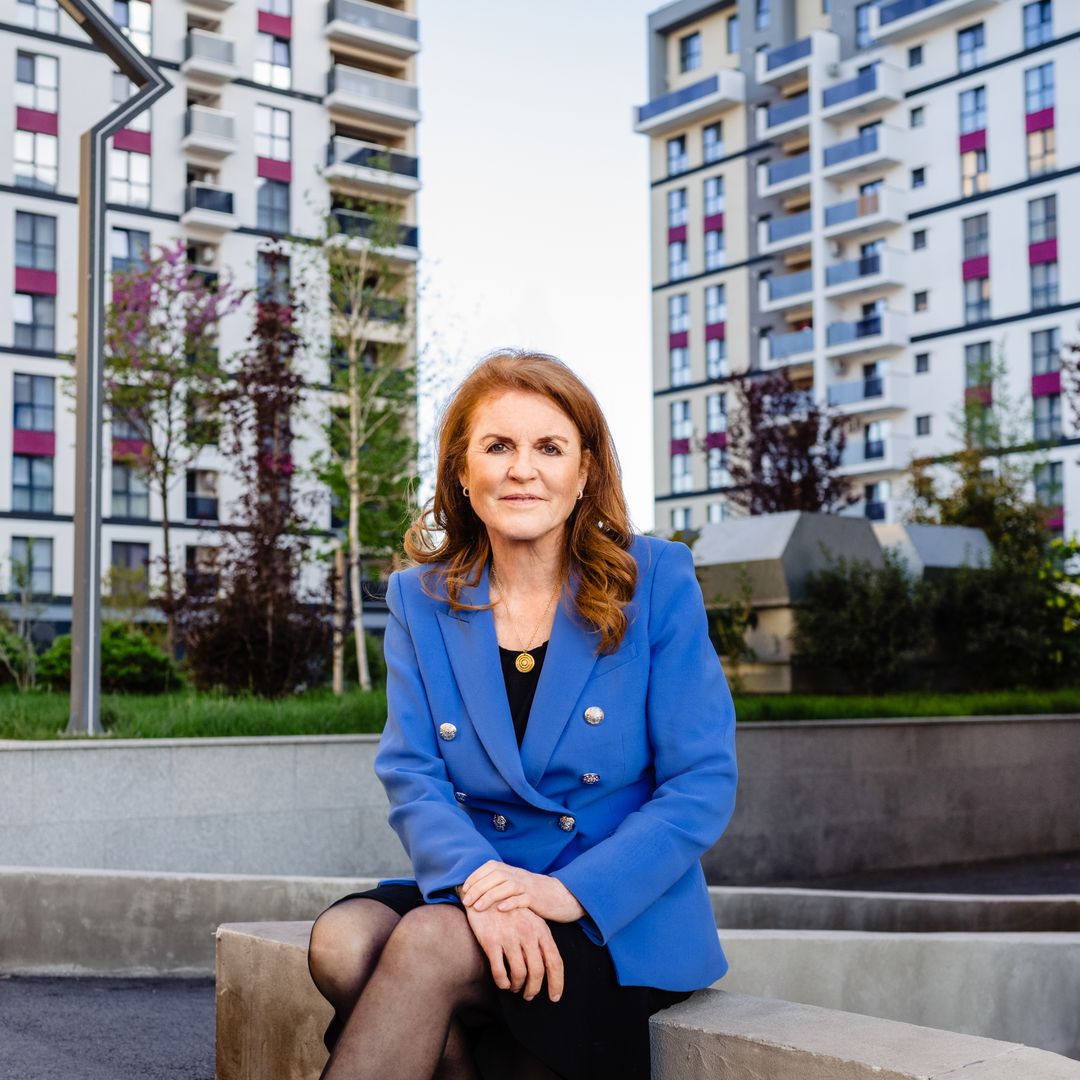Heading back to school after the long summer break can be a nerve-racking time, and for children making the move up from primary to secondary school in September, there's a lot to think about and prepare for.
MORE: 19 cool school backpacks for teenage boys and girls
SEE: Alesha Dixon talks balancing ambition with passionate parenting
As part of HELLO!'s Back to School Digital Issue guest-edited by Alesha Dixon, we spoke to Dr. Jane Gilmour for her advice on how to best prepare your child for starting Year 7 at secondary school.
Dr. Jane is a Consultant Clinical Psychologist at Great Ormond Street Hospital and Course Director for postgraduate child development programmes at University College London.
She has also co-authored the books How to Have Incredible Conversations With Your Child and The Incredible Teenage Brain.
Read her tips below…
Practical things you can do
"There are some very practical things you and your child can do to prepare for starting secondary school, so get familiar with the things that you know are going to happen.
"For example, is there a bus route to learn? Can your child find out the names of new classmates and link up with them? Can they learn the teachers' names and the subjects?
"You're familiarising your child with some of the information so they're not having to negotiate lots of new things on the first day."
MORE: Giovanna Fletcher gives us a candid look into her daily school run
Managing expectations
"A useful thing for parents to do during the summer holidays is managing expectations – don't be tempted to promise what you can't guarantee.
"Of course, every parent wants their child to have a wonderful time at school, but if you say, 'I know you're going to love it' from day one, that's not a promise you can keep. You've got to maintain your credibility and be honest.
"Instead say: 'It might take a little bit of time to settle.' That way you're not sending them in with an unrealistic expectation, because there are some challenges. Some children settle well quickly, but some take some time. You'll know your child and how to manage that.
"You might talk about expectations with your child. Some kids get lost on the first day – and that's alright because it's a different school. Ask: 'If you did get lost, what would you do?'
"Remind them to be patient. It will feel different at first. "Maybe reference them back to another unfamiliar situation that they managed and negotiated.
"Did they go to a family wedding where they didn't know anyone and then they made some friends? That's particularly useful for children who've been in one primary school all the way and they are starting school not knowing anyone.
"If they say, 'I'm going to miss primary school', tell them, 'That's ok, it's ok to miss something, you're going to have a new experience now.'
"It's a great sign that they miss primary school because it means they have a positive experience of school."
MORE: 12 best pencil cases for kids going back to school – we guarantee they'll love them
Agree on a communication strategy
"It's good family practice to establish some good communication channels because it sends out a positive message.
"Ask your child: 'How would you let me know if you were struggling? Would you tell me? Would you talk to me? Would you write me a note?' Just by saying, 'How would you do that, if you were worried?' is a really good strategy.
Talking hypothetically is really freeing and you're giving a strong message that 'we talk about the tough stuff'.
"You might model that yourself during the holidays, saying something like, 'I remember when I felt nervous going into a meeting' – talk about those sorts of emotions and then they get the signal that, ok that's what we do in our family.
"Ideally you would have done that from the year dot but if you haven't, you can start now and make it a family habit."
If your child has additional needs
"If your child has any particular learning needs, mental health issues or wellbeing needs, you can create an information sheet on your child for the new school, and put their photograph on it. Then email it to your child's new school's learning support department.
"Make sure that you've included your permission on the sheet for the school to share it with all your child's teachers.
"One of the challenges and the wonderful thing about secondary school is you have lots of new teachers – but that means lots of new teachers have to get to know your child, so there's a communication challenge in secondary school that there wasn't in primary school.
"This isn't relevant for kids who don't have additional needs, but for those who do, it can be a good thing to do: a sheet that says, 'This is how to get to know my child.'"
MORE: How mums can manage their 'mental load' – psychologist reveals how to tackle that endless to-do list
The big day
"On the first day at secondary school, parents are likely to be anxious because it's a big step, but our job is to keep perspective and balance, and to hold the emotion.
"Our job is to telegraph calm, with our words, actions, tone of voice, and speed of voice. If you look calm, your child will feel calm. It's a really important strategy.
"You may well have lots of anxiety… Take those anxieties and talk to your adult friends about them and not in your child's earshot. Your job as a parent is to convey calm in words and actions because that will help them feel settled."
After the first day at secondary school
"When children come home from their first day at secondary school, some kids will tell you the lot but some will need time to think about it.
"They're in a new school system, they've met new kids, new teachers, they might have new subjects, there's a whole load of stuff that they need to process - so they may not be ready to talk to you as they walk in the door.
"Let them have a rest, give them some food and then maybe ask some open questions, like 'What really stands out from today?' Some kids are talkers and some are not, so just be patient.
"If they come home and say, 'I hated it' (and sometimes that happens if it's a rocky start), just listen. As parents, we want to sort things out for our kids, but in this situation, just let them talk.
"Sit alongside them and repeat back what you've heard. This is validating for a child because they will feel heard. All you need to do is listen, and it's very hard to do.
"If it's a persistent issue happening day after day, then you might move to problem-solving but the first job is to listen, validate and be alongside them. Be clear that you want to hear it, and don't shut it down by saying, 'Oh don't be silly, it will be better tomorrow.' Say: 'Tell me about it.'
"By listening, you're helping your child sort through their feelings and emotions and figure out what it was that wound them up. Was it just one kid they didn't like? Was having different teachers for different subjects overwhelming?
"Saying it out loud helps us figure out what's on our mind, and that's so important as children go into adolescence because they are moving into a different phase."
Like this story? Sign up to the HELLO! Family Hub newsletter to get other stories like this delivered straight to your inbox.
